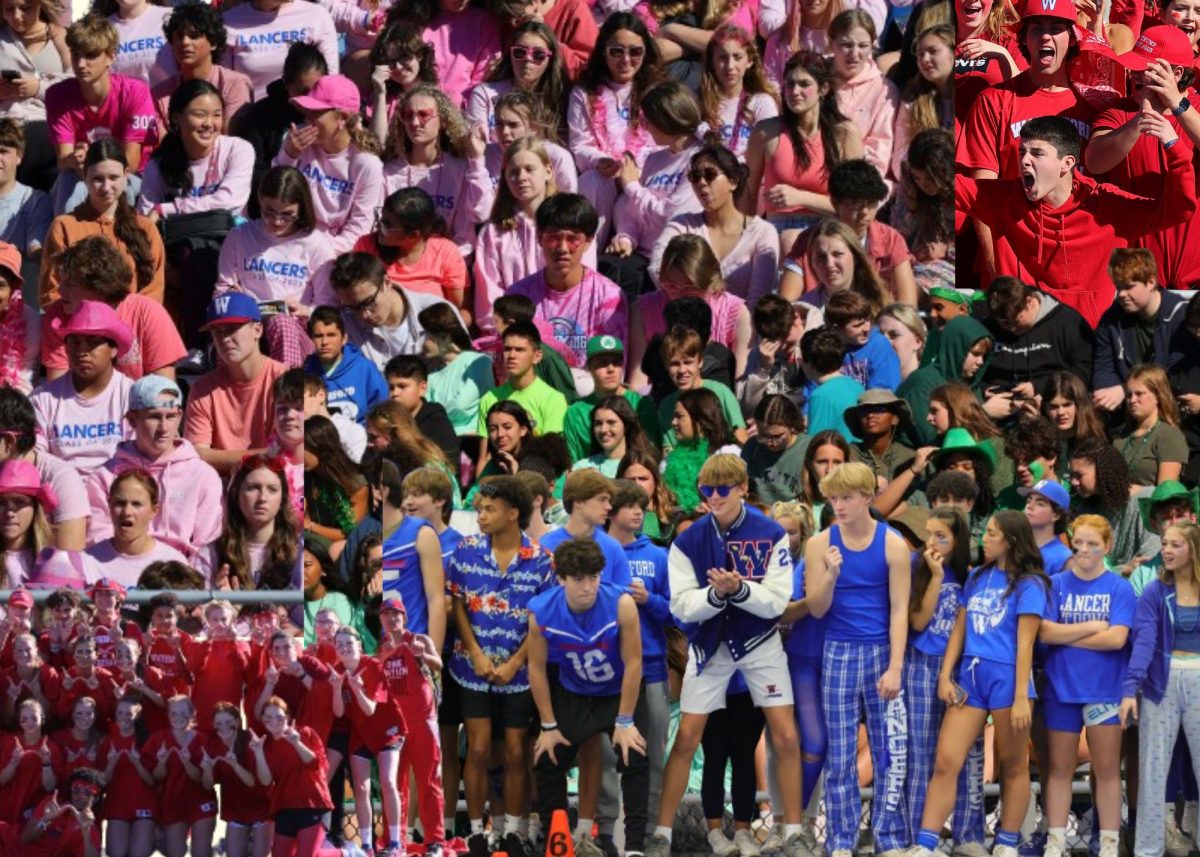Is there a way to be accommodating and inclusive without stripping away traditions? Students here at WHS are expressing concern that while being inclusive is a top priority, it is also taking away traditions that are key to the high school experience, such as homecoming court, prom king and queen, senior superlatives, and spirit weeks. The fear of being unintentionally offensive and the need to take everyone’s feelings into consideration have seemed to make us lose sight of tradition. Traditions are a key aspect of the full “high school experience,” and now students are being deprived of the things they grew up looking forward to.
A major event students typically look forward to is spirit week before homecoming. It is the build-up for the big homecoming football game and pep rally. Class color wars is the last day of spirit week, and we section the students by grade. In the past years, the colors consisted of white, black, red, and blue. First-year students are wearing white, sophomores are wearing black, juniors are wearing red, and seniors are wearing blue. Within the past two years, the school has prohibited the wearing of black or white during spirit week class color wars. Now seniors and juniors still get to wear red and blue, but underclassmen choose their class colors each year. As long as they are not black, white, red, or blue, they are approved. Even if they are not our school colors, this is due to the fear that some students may take behavior into their own hands and do blackface due to ignorance and racist behaviors, or purely to get a laugh from peers. So, instead of the administration enforcing strict rules to prevent and punish these behaviors of the few, they completely take the tradition from the majority. “We should be punishing individuals because there are very few people who would do that. But now instead, they punished us and future classes for behavior that hasn’t even been displayed by the majority,” says senior Saeeda Samed. Simply taking it away during color wars doesn’t stop the issue; it puts a bandage on a wound that needs stitches. Rather than educating, we avoid it.
Race is not the only issue they tiptoe around, but also gender and identity within the school. Things such as homecoming court, prom king and queen, and senior superlatives have fallen victim to the chopping block of their version of inclusivity. Rather than adapting the traditions to be more inclusive, they completely throw them out. “During class council, multiple students gave multiple ways for them to include people without gendering them,” student Gracie Bartelli says, and proceeds to give examples of ways to avoid the tough topic of gender. Instead of the homecoming court and the prom king and queen being based on boy and girl candidates, the council proposed royalty instead. It could be anyone based on purely votes, not gender. These ideas were rejected, and instead of finding a solution, we will no longer have a homecoming court or any royalty.
Senior superlatives have posed the same issue. Typically, in the past, each category would have a boy or girl winner. The worry of gender, though, has caused the change to only have one person winning each category unless it is a duo category. Rather than having two people (not based on gender but off of the votes), the administration has decided only one person will win each category, unless it is a duo-specific one. While this is an attempt to be inclusive, it does quite the opposite. Senior superlatives are about 40–45 categories, with around 5 being duos. This year’s senior class consists of around 164 people. The number of categories alone will leave at least 114 people out of the “award show” that is being hosted. If they adapted and still had two people winning each category, not based on a specific gender, it would only leave around 69 people who wouldn’t be winning an award. This would be about 42% being left out, versus a whopping 70% of the class not being included.
The fear of offending a small percentage is drastically taking away from the larger percentage. This is a fear the administration should be approaching from a different perspective. This is an issue that needs insider opinion and information. This is a problem where they should really be considering alternatives from the target audience or group affected, the students.



